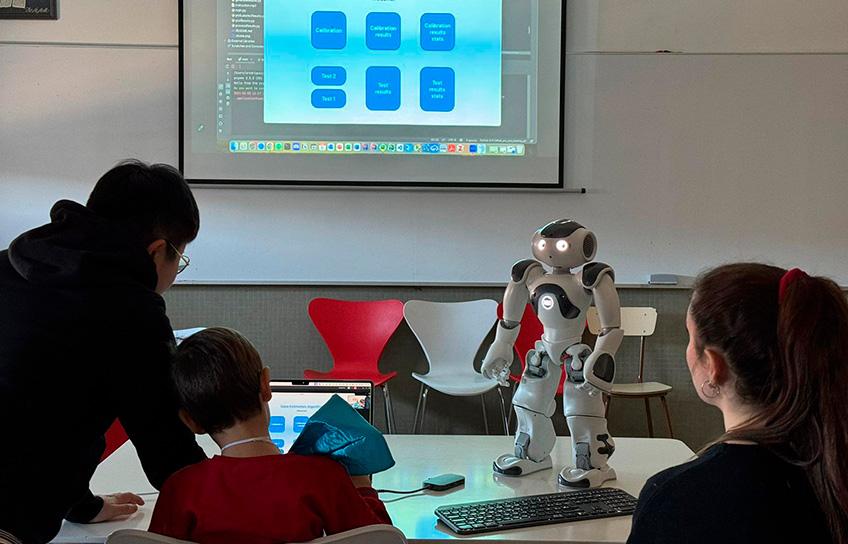DIVINTECH
Research Lines
The project originates from the specific orientation to solve a concrete problem linked to the thematic priority of "Culture, Creativity, and Inclusive Society," defined in the programming of the PEICTI 2021-2023. In this sense, and from a multidisciplinary perspective at the intersection of the thematic areas of Education Sciences (main field), Psychology, and ICTs (defined by the AEI), it seeks to improve social inclusion, especially in the educational and family spheres, of students affected by Autism Spectrum Disorder (ASD), through the design, implementation, evaluation, and scalability of STEAM activities (Science, Technology, Engineering, Arts, and Mathematics) in specially designed spaces.
There is a growing issue in Spain, where there is an increasing number of children affected by some form of diversity gap. Specifically, for the profile in question, the identification of ASD cases in non-university education has increased by 8.07% (4,497 individuals) in the 2020-21 academic year, with a total of 60,198 students (50,372 boys and 9,826 girls) identified in some of its dimensions. This increase is not isolated and confirms a rising trend for the tenth consecutive year. Considering that people with ASD have been recognized as a group of special vulnerability in the new Employment Law and that specific repetitive work with these profiles improves the integration of the student in many aspects, the project fits the call for proposals as oriented research since it deals with solving concrete problems linked to challenges and priorities defined at both the state and international levels.
The DivInTech project (for Diversity, Inclusion, and Technology) commits to addressing this rising issue with the aim of enhancing the skills and social inclusion of students with ASD (Autism Spectrum Disorder). The methodology is based on STEAM action-research, using educational robotics as a tool adapted to the different profiles of the student body:
- Output 1: By identifying the behavioral profiles of students affected by ASD, the project will proceed to design, implement, analyze, and scale interaction models with robots where these serve as a facilitating support for learning and common tasks, all within enabled spaces that allow for the improvement of their academic evaluation in parallel with their social integration.
- Output 2: As a complementary objective, a map of territorial diversity will be created for each center of action.
On one hand, to allow the externalization and scaling of the methodological proposals and work interventions carried out with students from other centers with similar characteristics. On the other hand, to establish an open forum for the exchange of good practices and support among educational centers and nearby social entities that allows for such social integration to be effective and satisfactory over time. The approach can be defined as innovative, for its mixed focus and technological uses, as long as we work both at a macro level and a micro-social level focused on improving the social inclusion of students with ASD in their closest environment given the growing magnitude of this group. At the micro level, the interaction of the children will be monitored qualitatively by the center's tutors and teachers and the follow-up space to observe the degree of success and development of the designed interventions.
On the other hand, we will work quantitatively through biometric bracelets that will allow syncing the activity with the physiological response. This way, it will be possible to identify those significant moments of the process regarding the physiological response of the student with the specific interaction with the robot. At the macro level, one of the objectives will be the creation of a map of ASD diversity in the environments and territories of the study centers, so that it can be scaled at the three levels we will present later. Both the macro outcome (diversity map) and the micro outcome (interventions based on the student profile) will be prepared for scalability at three levels: the network of La Salle schools in Spain-Portugal (ARLEP, with more than 100 schools, some of which are already equipped for attention to diversity), in the second instance to other external national school centers of the Arlep network and/or national centers of countries with which a consortium for collaboration on projects like Erasmus+ can be established, and finally at a third level to any other educational center in the territory.
